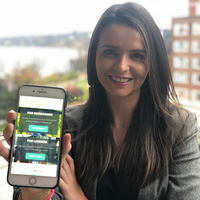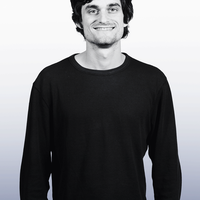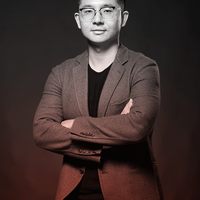“It is hard to find someone who has
better-combined skill and ability both in academic research and industry
innovation than her,” Xiao’ou Tang, the founder of SenseTime, said highly of
Jianping Shi.
Jianping already demonstrated outstanding research ability when she was in
university. During her Ph.D., she published 12 papers in major
conferences and high-impact journals, including CVPR and ICCV. In many of them,
she was the major contributor and proposed essential algorithms.
One of Jianping’s major breakthroughs was creating the field of blur image
estimation. She primarily focused on analyzing blur related features and
conducting applications to amplify blur effect for professional camera
simulation. Her solutions provided fundamental insights and a widely-adopted
evaluation platform for follow-up research.
“I believe deep learning is the key to unleashing the potential of computer
vision. I really enjoy taking on challenges and applying such technologies to real life
problems,” Jianping said. In fact, this spirit motivated her to join SenseTime,
a new-born Chinese AI company at that time.
Jianping acted as the Research Director at SenseTime, leading the research
projects across multiple areas like mobility, remote sensing, augmented
reality, and autonomous driving. Many of the projects have already spawned
real-life products like SenseBeauty for mobile beautify applications and
SenseAD for the autonomous driving platform.
Meanwhile, Jianping also led the team to continuously invent fundamental
algorithms and proposed many technical solutions to improve performance.
Their innovative algorithms, such as PSPNet, PANet, and FishNet, helped them
win several awards in many worldwide contests, including the ImageNet scene
parsing challenge, the DAVIS video segmentation challenge, and the COCO instance
segmentation challenge.
In recent years, Jianping has devoted most of her effort into the development
of autonomous driving systems. Her team collaborated with Honda and managed to
create a self-driving car that only relied on cameras to execute the driving
programs in normal and bad weather conditions.
The final demonstration impressed everyone at the Honda annual technical event in
2016. This success eventually led to the long-term strategic relationship
between SenseTime and Honda, as no one had ever accomplished such sophisticated
self-driving with only four cameras.
Jianping now is taking charge of the entire Intelligence Vehicle research group
in SenseTime, trying to provide full autonomous driving solutions with deep
learning in near future. “I feel very lucky to be working in the most exciting time period. I hope I can use my knowledge and effort to make a difference,” she said.




